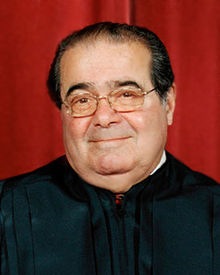
Scalia’s Death Provides A Narrow Escape for Public-Sector Unions
“The judgment is affirmed by an equally divided Court,” the justices wrote in a brief, unsigned ruling.
The relevance to the SEIU effort is clear. Under Washington law all of the UW faculty would have to join the Union if it were to win its bid to organize the faculty. Under California labor law, public employees vote to designate a union as their exclusive representative for collective-bargaining purposes. California employees , however, can’t be forced to join a union. Those who do not join the union do not pay dues to support the union’s political activities.
California is different from Washington because in California employees who don’t join the chosen union are still required to pay a smaller “agency fee” to the union to help fund its collective-bargaining functions.
Unlike member dues, funds from the agency fees can’t be used for the union’s political purposes. The lesser fee helps avoid a free-rider problem where employees benefit from the union’s representation without paying to support it. Twenty-two other states and the District of Columbia have similar labor laws on the books. The Federal Ninth Circuit Court of Appeals ruled for the teachers’ union with a two-page opinion, describing the teachers’ case as “so insubstantial as to not require further argument.”
This raises an important issue that the Faculty Forward/SEIU group could and should address. Washington state does not have an agency fee law. The proposed contract would entail about $5 million in dues, most of which would go to the national SEIU. Since Washington state law does not include the opt out “agency fee” provision, a large part of that presumably would support SEIU’s political activity.